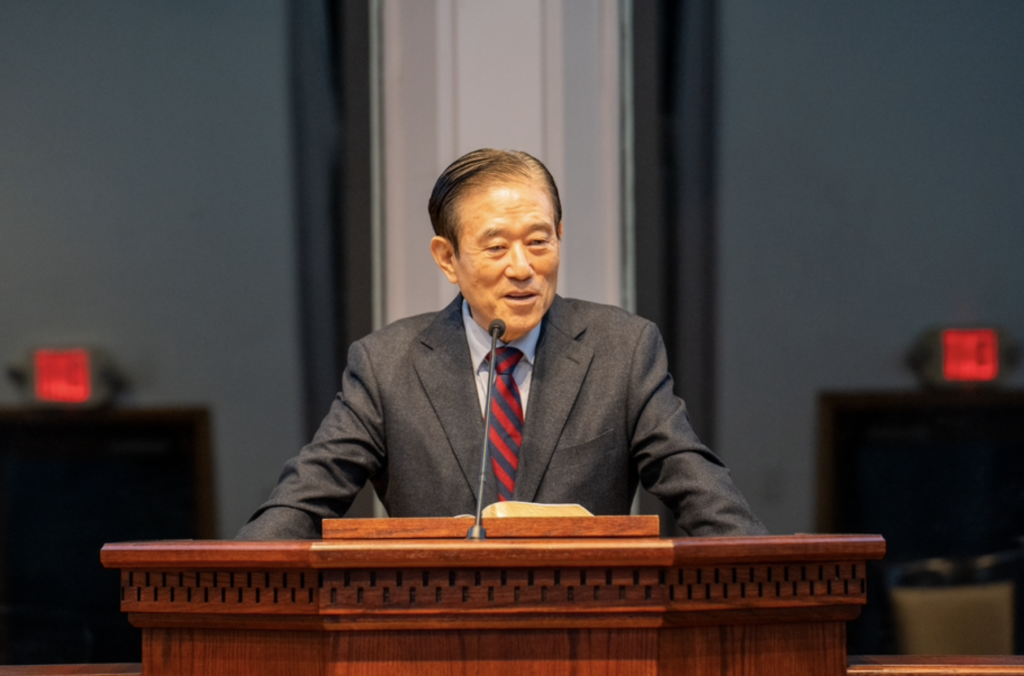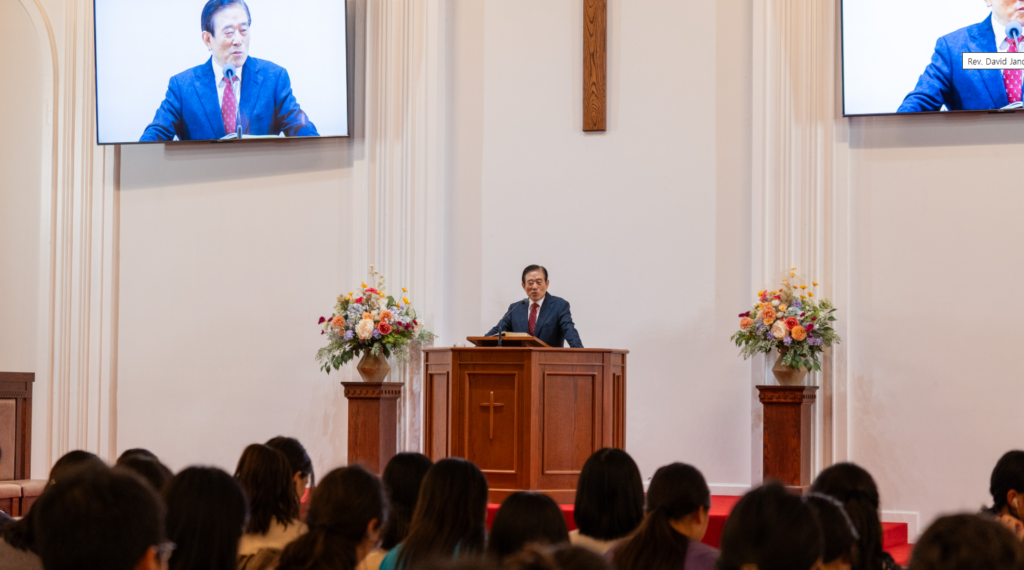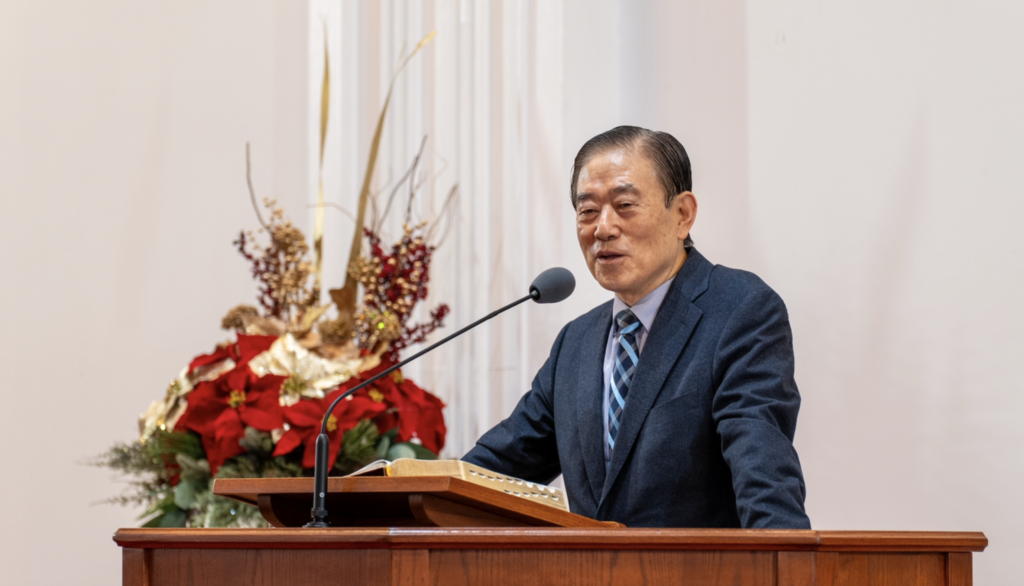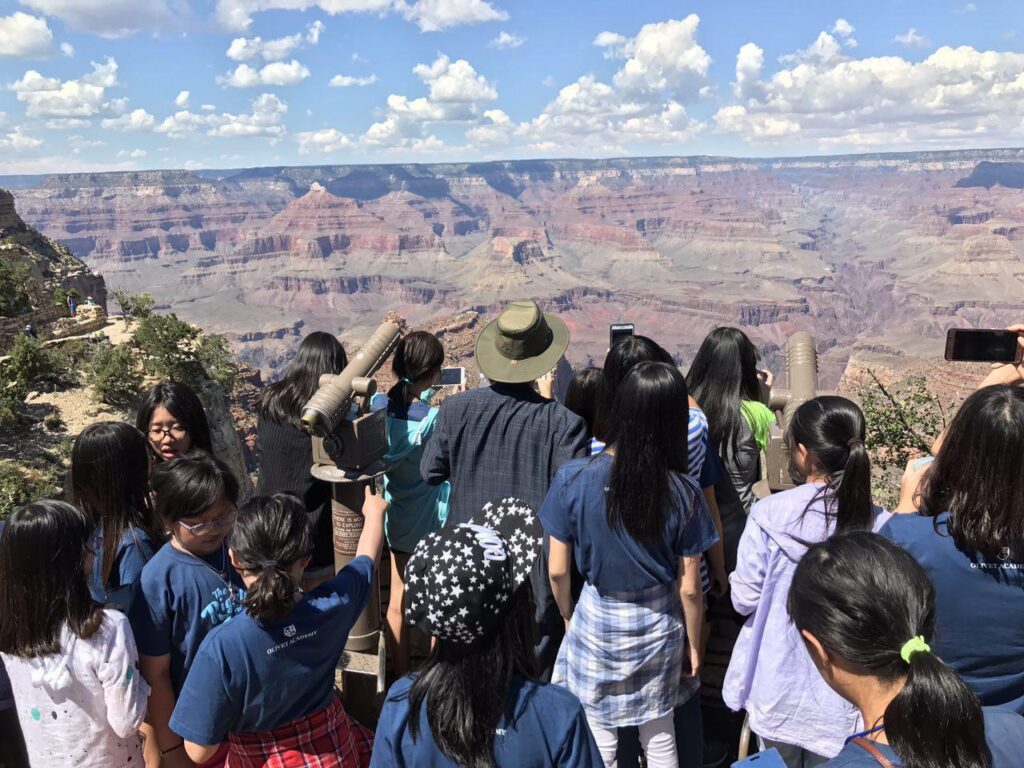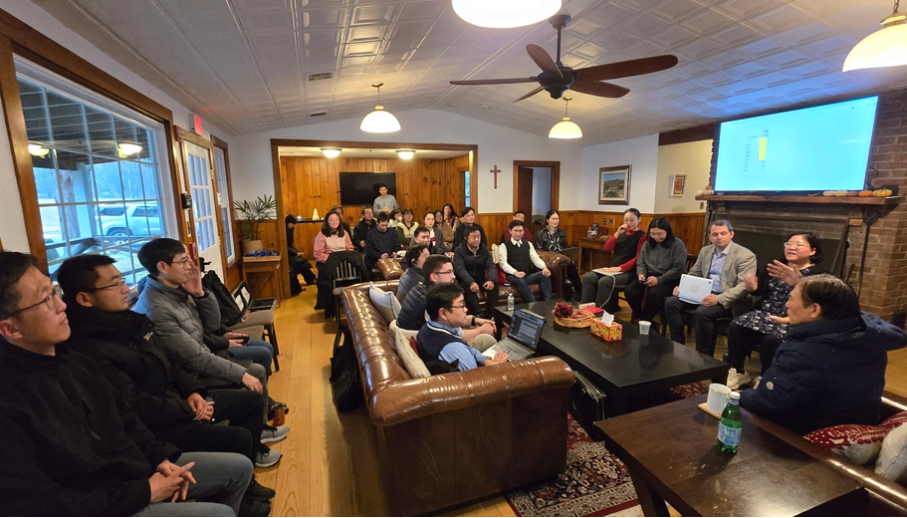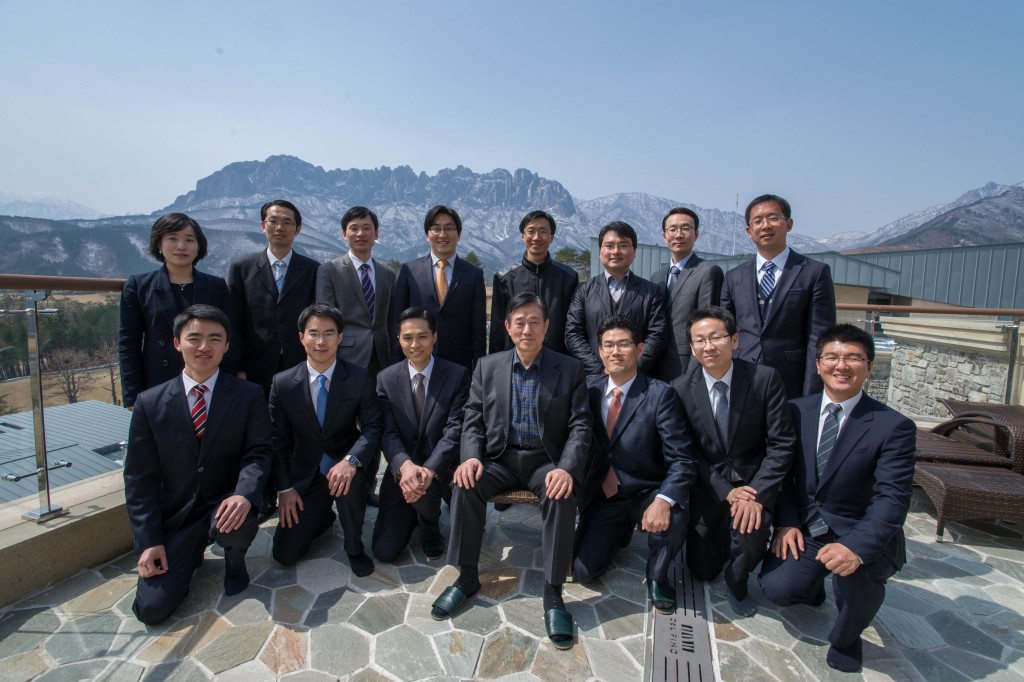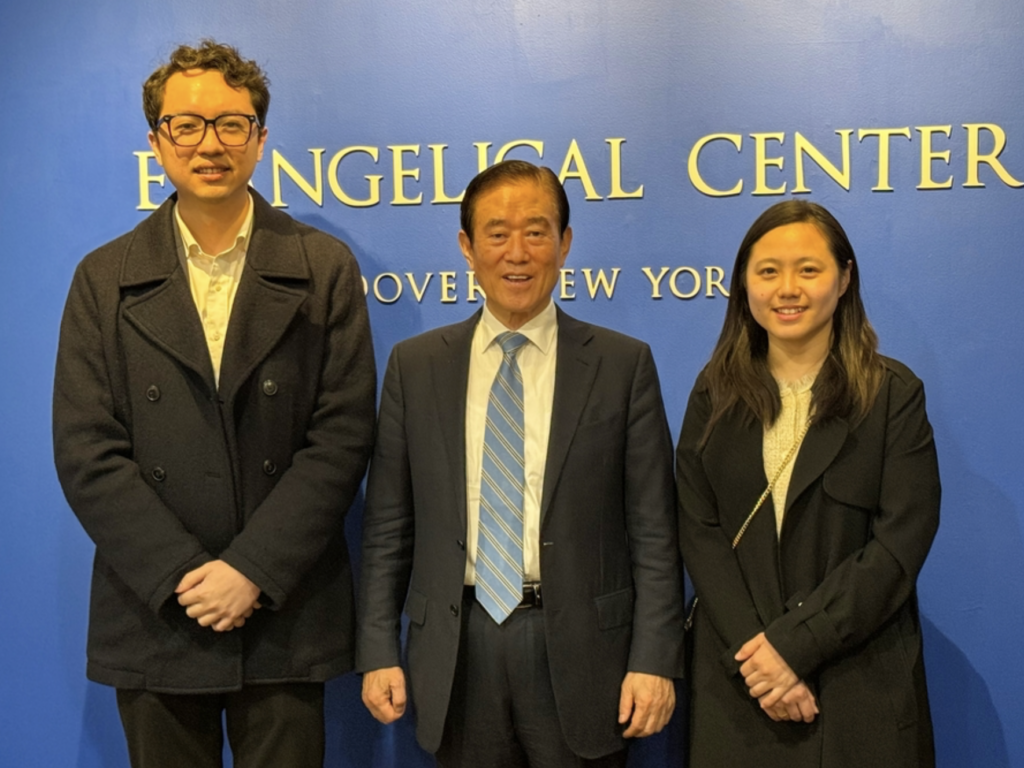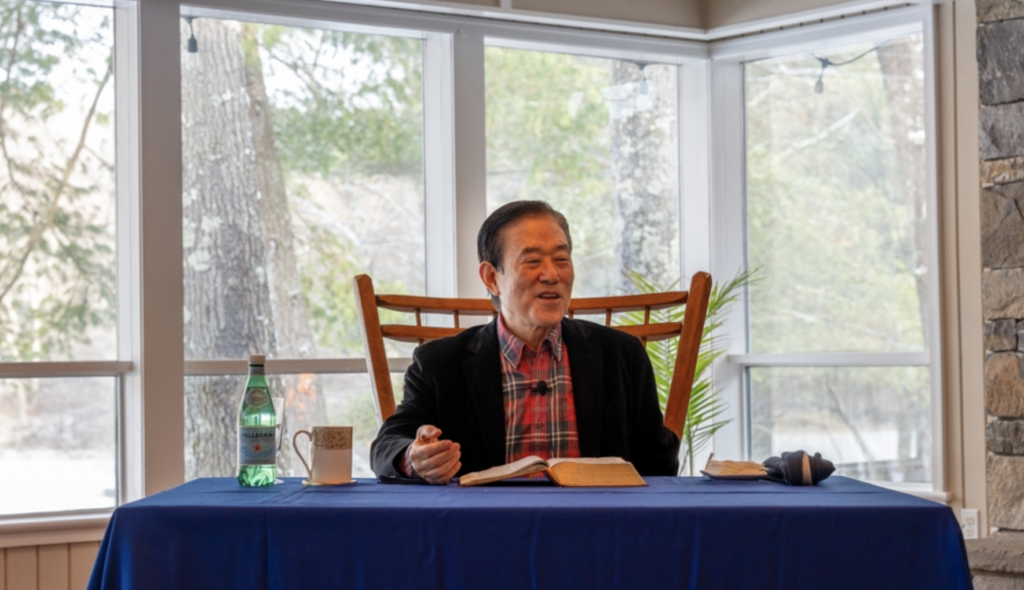
1. Ecclesiastes and the Wisdom Books
Pastor David Jang classifies the Book of Ecclesiastes as a “wisdom book,” highlighting its crucial place within the Bible. According to him, Ecclesiastes, as part of the wisdom literature, shows that human wisdom is not merely the accumulation of knowledge or life experience, but ultimately a form of spiritual insight that comes from knowing God. In particular, he points out the shared qualities of wisdom literature in both Ecclesiastes and Proverbs, while also noting each book’s unique message. Proverbs offers concrete and practical life guidelines based on the overarching theme of “the fear of the Lord,” whereas Ecclesiastes tackles more existential questions—“What is life?” “All is vanity, so what does that truly mean?”—thus addressing fundamental and direct concerns.
One of the representative keywords in Ecclesiastes is “vanity.” Pastor David Jang often compares the term “vanity” with the English Bible’s “meaningless,” explaining that the meaning goes beyond simply “everything is worthless or without significance” to point out the fateful aspect of human existence returning to “nothingness.” This idea—that we return to nothing—appears at both the beginning and end of Ecclesiastes, making it seem as if the “Preacher” (the author of Ecclesiastes) is delivering a bleak and pessimistic view of human nature. However, Pastor David Jang explains that this pessimistic conclusion is actually the device by which Ecclesiastes most deeply reveals its spiritual significance. Time and again, Ecclesiastes emphasizes that even if a person enjoys all forms of intellectual prowess (Ecclesiastes 1) and physical pleasure or wealth (Ecclesiastes 2), it inevitably ends in vanity. This “vanity” signals humanity’s finiteness—that those constrained by time will ultimately have to relinquish everything at death—and also highlights that, apart from God, it is difficult to find true meaning or eternal value.
Thus, Ecclesiastes, as a book of wisdom, reminds us of two premises that people easily overlook. One is that “humans die.” As Hebrews 9:27 teaches, “it is appointed for people to die once, and after that comes judgment,” a universal principle for all humanity, a point Pastor David Jang repeatedly mentions. This dovetails precisely with the main theme of Ecclesiastes: “All is vanity.” None of humanity’s time, talent, or material possessions can be taken along after death, which compels us to reflect on spiritual fundamentals. The other premise is that humans already have “a sense of eternity” in their hearts (Ecclesiastes 3:11). Pastor David Jang argues that while animals do not contemplate what happens after death or the ultimate purpose of their existence, all human beings wonder about what lies beyond death and what the meaning of life is. This, he says, is the longing for eternity that God has placed within us.
Pastor David Jang believes the way Ecclesiastes begins with “life is vanity” and then proceeds to the exhortation in the final chapter 12—“Remember also your Creator in the days of your youth” (Ecclesiastes 12:1)—captures the essence of wisdom literature in compressed form. Knowing that your existence ultimately ends in vanity, you are called, in the “days of your youth”—which symbolizes not just physical age but the period in which purity of heart and fervent faith are most vibrant—to remember and cling to God the Creator, which is true wisdom. Likewise, Ecclesiastes 12:8, “Vanity of vanities, all is vanity,” reaffirms the ultimate vanity of everything—possession, knowledge, honor—and uses it as a cautionary example to awaken people to the essence of their spiritual existence.
In this context, Pastor David Jang underscores the central thesis of Proverbs: “The fear of the Lord is the beginning of knowledge (or wisdom).” No matter how advanced human knowledge or scholarship becomes, without the spiritual foundation of “fearing the Lord,” that knowledge remains limited and temporary, ultimately falling under the sphere of “vanity” as described in Ecclesiastes. Hence, the pair of wisdom books—Ecclesiastes and Proverbs—presents seemingly contrasting concepts of fear (Proverbs) and vanity (Ecclesiastes) that, in tension and balance, help us insightfully grasp human existence and faith. Pastor David Jang insists on the necessity of applying this wisdom literature to every era and generation. He stresses that not only young people, but all ages should not ignore life’s transience but rather, through awareness of it, come to fear God all the more. This is precisely the Preacher’s message.
Additionally, he emphasizes the importance of reading Ecclesiastes 3:1 and 3:11 together:
“There is an appointed time for everything, and there is a time for every matter under heaven.” (Ecclesiastes 3:1)
“He has made everything beautiful in its time. He has also set eternity in the human heart; yet no one can fathom what God has done from beginning to end.” (Ecclesiastes 3:11)
Both of these verses speak to the finite nature of human life, the eternality of God, and the mystery and reverence with which humans must approach Him. “Time” here includes not only the passage of hours and days but also specific points in time when a purpose is fulfilled. Pastor David Jang interprets that “the heart that longs for eternity” within us is the driving force that leads us beyond this temporary and finite earthly existence into God’s eternity. As such, Ecclesiastes, as a book of wisdom, delivers a direct message to believers—that they should discern their lives, recognize death, and look toward eternity.
However, this message applies to both the young and the old: no one can avoid death, and at that point all possessions, knowledge, and honor return to nothing. While this is vanity, Pastor David Jang points out that for those who awaken to this vanity, it also becomes an opportunity to receive heavenly wisdom. In this sense, he argues that being conscious of this vanity and our mortality actually opens the way “beyond tragedy.” And if we follow the context of Ecclesiastes into the New Testament, the solution we find to transcend this tragedy is “eternal life and the kingdom of heaven through Jesus Christ.” Therefore, the proclamation of vanity in Ecclesiastes is like the thirst that causes us to seek water: it awakens spiritual longing, leading us to seek Jesus Christ, and in Him discover the path of true life.
At this point, Pastor David Jang also draws attention to the perspectives of scientists. Many scientists feel a sense of awe before the vastness and fine-tuned order of the universe, and that very awe can lead them to acknowledge the existence of God. Romans 1:20 undergirds this perspective: “For since the creation of the world God’s invisible qualities—his eternal power and divine nature—have been clearly seen, being understood from what has been made, so that people are without excuse.” By observing the intricate and complex natural world, one cannot deny its inherent order; thus, one naturally feels reverence for the Creator who established that order. Ultimately, the “vanity” mentioned in Ecclesiastes reminds humans of their own insignificance, while also guiding them to recognize the world God made and the eternal providence within it. So, the path of the wise man who seeks to grasp the essence of life is precisely what the Preacher emphasizes: “Recognize death and remember your Creator.” Pastor David Jang reiterates this point.
Pastor David Jang further underscores Ecclesiastes’ portrayal of “Remember your Creator before you grow old,” highlighting the explicit description of humanity’s gradual aging process (dimming eyesight, declining hearing, trembling legs, and losing teeth) to illustrate how quickly life decays. Many people begin to question life’s purpose only in its twilight years, when body and mind have already diminished and it is difficult to change. Therefore, the biblical counsel that true wisdom must start in one’s youth—when one’s body and spirit are most active—is contained in this teaching. In other words, while recognizing the “vanity” of life, rather than sinking into despair, we should instead use that awareness as a stepping stone to find the path of true life. This, according to Pastor David Jang, is the ultimate lesson of Ecclesiastes.
In this way, the structure of vanity, death, and “remembering the Creator” in Ecclesiastes is a universal and powerful theme that traverses the entirety of human existence, from youth to old age. Pastor David Jang repeats this message, urging everyone inside and outside the church to deeply internalize Ecclesiastes’ recognition of death and yearning for eternity. He especially emphasizes that the church should teach this truth from childhood, so that the younger generation can accurately recognize the nature and finality of life from an early age. After all, humans are not merely physical beings but spiritual ones; our pursuit of truth follows the hope of our spirit, not of our flesh.
Here, Pastor David Jang maintains that the path of “fearing the Lord” as depicted in Proverbs and the path of “encountering life’s vanity and remembering the Creator” as shown in Ecclesiastes ultimately produce the same fruit. The core of wisdom is to know God and to fear and revere Him. Since all genuine value and meaning flow from that reverence, even the greatest human knowledge, if divorced from God, cannot be transmuted into eternal value but remains a partial or temporary benefit.
Summarizing his point on Ecclesiastes, Pastor David Jang states: “Humans are finite and cannot escape death; in that reality, the true wisdom is to remember the Creator and to take hold of eternity.” He expounds on this with various illustrations and biblical examples, insisting on the continuing relevance of Ecclesiastes’ message both within and outside the church community. If we fail to grasp this, he warns, we will one day find our life’s hard-earned achievements disappearing in a flash and our souls’ thirst unquenched. But if we cling to the genuine wisdom that Ecclesiastes teaches, our lives will be open to the time and purpose that God has ordained. Thus, in that realm, we will finally experience the real meaning of the “heart that longs for eternity,” as Pastor David Jang teaches.
2. Human Finiteness and Eternity
The fundamental questions that Pastor David Jang raises through Ecclesiastes are “Why is human life vain?” and “How can we go beyond that vanity?” He clarifies this by contrasting human finiteness with the hope of eternity that God bestows. According to Pastor David Jang, human finiteness refers to the way we are constrained by time and space. No matter how much knowledge we accumulate, wealth we gather, or pleasure we enjoy, nothing changes the fact that we will eventually face death. The Preacher (Ecclesiastes) repeatedly stresses this with the word “vanity,” and Pastor David Jang explains that we could also articulate this notion of vanity using biblical language such as “returning to nothingness” or “ultimate dissolution.”
Why, then, did God allow humans to experience such vanity? For an answer, Pastor David Jang places Ecclesiastes 3:11 at the center: “He has made everything beautiful in its time. He has also set eternity in the human heart.” This verse teaches that the longing for eternity that exists within each human being is the most powerful force driving us toward God. Animals do not ponder the meaning of their existence, nor do they worry about what comes after death. Only human beings continually wonder why they exist, why they die, and what happens when they do. This spiritual yearning is the “heart that longs for eternity” described in Ecclesiastes. Pastor David Jang underscores that this can be understood as a kind of “internalized instinct for faith.” Even if a person has never been explicitly taught religion, the moment they sense the wonder of the universe or the mystery of life, they naturally become curious about some divine entity.
However, Pastor David Jang notes that people often try to fill this longing with worldly pleasures, wealth, or power. As Ecclesiastes chapters 1–2 show, the Preacher once indulged in all manner of joys and delights that exist under the sun, only to find that everything faded like a midsummer night’s dream and turned out to be vanity. This is no different in modern times. The abundant material comforts, amusements, and the flood of information in our society do not fully satisfy human spiritual longing. On the contrary, these things tend to deepen our thirst. From this, Pastor David Jang argues that “a life without God is consumed by blind efforts and accumulation,” only to face the reality that it all becomes useless when confronted with death. Here, Ecclesiastes’ refrain, “All is vanity,” echoes yet again.
Nevertheless, Pastor David Jang says that this recognition marks not an “end” but a “beginning.” Acknowledging “vanity” opens the door for us to move closer to God, who is Truth. When humans understand their limitations, their eyes turn automatically to the One who transcends these limits. It is a problem beyond the reach of mere intellectual enlightenment or moral perfection; it can only be overcome by the spiritual solution given by God the Creator. Concretely, the New Testament’s message—that the power of sin and death has been broken through the cross and resurrection of Jesus Christ, granting us “eternal life”—is, for Pastor David Jang, the ultimate remedy for the problem of vanity that Ecclesiastes raises.
At this point, Pastor David Jang asks, “Are we living, or are we dying?” Humans exist as a tragic reality, always drawing closer to death. However, the path to transcend (beyond tragedy) lies in the hope of “eternal life” and “the kingdom of heaven” promised by Jesus Christ. By seizing this hope, we can pass through the deep gloom of vanity that Ecclesiastes describes, discovering instead genuine meaning and value. Pastor David Jang explains this with two perspectives. First, “We already have something far more precious within us.” He draws on Acts 3:6, where Peter says, “Silver or gold I do not have, but what I do have I give you.” In other words, even if one lacks material or worldly power, possessing Jesus Christ grants one true and everlasting value. Second, “The present is connected to eternity.” This means that our brief life moments are not isolated; from the perspective of eternity, they continue in unbroken sequence. Each step taken in faith is itself part of the Kingdom of God—a concept that theologians sometimes call the “eternal now.” As a result, every tragedy can hold new meaning in God’s promise, and this tragic reality can be transformed toward eternity.
Communicating such a viewpoint, Pastor David Jang then explains how the church community should live in the world. A believer who understands human nature correctly should not become enslaved to possessions, he says. When Jesus called His disciples, He said, “I will make you fishers of men” (Matthew 4:19). Before His ascension, He also declared, “You will be my witnesses to the ends of the earth” (Acts 1:8). This is the Great Commission. But if one is bound to possessions and seeks only material comfort, it is merely “the blind leading the blind.” Hence Pastor David Jang encapsulates his message for Christians as “overcome ownership.” While it is inevitable to work for a living and earn resources, those should not be the “purpose” of life; genuine satisfaction and joy come only from seeking God’s Kingdom and His righteousness (Matthew 6:33). This is how we live, despite being mortal, with the perspective of “God’s eternal timeline.”
To accomplish this collectively, Pastor David Jang teaches that the church must follow Galatians 6:2, “Bear one another’s burdens, and so fulfill the law of Christ.” Bearing each other’s burdens in faith is the law of Christ, and when this law is observed, the church can build a culture of love and service different from that of the world. The pitfall many people fall into, however, is trying to place their burdens on others. Pastor David Jang instead points to Jesus’ example: “He laid down His life for us in sacrificial love,” reminding us that when we show that same sacrifice and devotion toward one another, the church community can truly fulfill its mission of evangelism and outreach.
At this juncture, Pastor David Jang broadens the perspective to look at historical contexts. He notes that in order for the church to fulfill the mission entrusted to it by the Lord, it needs practical organization and systems. Jesus said, “Go into all the world and preach the gospel,” and “make disciples of all nations” (Matthew 28:19–20). Therefore, building bases (centers), facilities, and cultivating cultural understanding are essential to carrying out actual evangelism and missions. Some may criticize the church’s financial and organizational development as “accumulation of wealth,” but Pastor David Jang sees these as necessary “tools” for fulfilling the given mission. The crucial point, he emphasizes, is whether these assets are used for God’s Kingdom or hoarded to fulfill personal ambition.
Indeed, Pastor David Jang frequently recounts his community’s history of more than 28 years (or even longer) during which they had little to nothing at first. He testifies that in those early days, they held onto Habakkuk 3:17–18—“Though the fig tree does not bud… yet I will rejoice in the Lord”—as they sang praises about rejoicing in the God of salvation despite having nothing. Yet as time passed and God’s grace provided various facilities, it was vital to see these not merely as surplus but as resources “to care for people, to share the gospel across cultures, and to do world missions.” The teaching of Ecclesiastes—that human endeavors end in vanity and that we can rely only on God—should not be forgotten. If we keep this in mind, then even when we possess something, we can humbly dedicate that possession to God’s purpose.
Pastor David Jang stresses that when we acknowledge the fact that humans are finite, it allows us to identify what is truly important in life. In Ecclesiastes 12, the images of “the silver cord being snapped and the golden bowl broken,” and of “dust returning to the earth as it was, and the spirit returning to God who gave it” (Ecclesiastes 12:7) vividly remind us of the inevitable end that awaits all. And precisely this eschatological awareness is what enables us to lay down our pride and greed, focusing instead on “spiritual” values, which matter most. Pastor David Jang explains that the depiction of aging (eyes growing dim, ears hard of hearing, teeth falling out, hair turning white like almond blossoms) throughout Ecclesiastes 12 helps us realize that we will inevitably grow old and frail. Thus, the true purpose of life is found in seeking God’s kingdom and righteousness, serving and loving those around us.
Hence, Pastor David Jang emphasizes that the “vanity” Ecclesiastes speaks of does not equate to a doctrine of nihilism. Rather, it becomes a catalyst for believers to grow. Those who acknowledge death recognize the preciousness of life all the more, avoiding the folly of clinging to possessions or power. They also become more attuned to others’ spiritual needs, motivated to share each other’s burdens as Galatians 6:2 commands, and so fulfill the law of Christ. Pastor David Jang adds that church communities should especially proclaim this message emphatically during seasons like Advent (Christmas). Commemorating the birth of Jesus Christ means reflecting on the truth that “God took on human flesh to dwell among us and invite us to eternity.” The real joy of Christmas is the announcement that we have obtained citizenship in the eternal kingdom of God, transcending human mortality—so we should celebrate it with the right understanding.
Moreover, he points out that if we realize “life passes by like an arrow,” we will not postpone what we must do right now. Ecclesiastes 3 teaches that “there is a time for every matter and for every work,” and Pastor David Jang insists that believers must take this even more seriously. In other words, “If there is something you need to do, do it today. Don’t put off until tomorrow what you can do today.” Spiritually speaking, that familiar adage becomes a deep truth. He applies this to church ministry and missionary strategy. In order to become “fishers of men,” we must seize the opportunities and times God has given us. That is why church communities place special emphasis on evangelizing to young adults first. Before they set life’s course and become deeply steeped in worldly experiences, it bears great fruit when youth receive the gospel. Though all age groups are important, as Ecclesiastes 12:1 says, “Remember also your Creator in the days of your youth,” it is crucial to meet God in the most energetic phase of life.
So, the message that Pastor David Jang conveys through Ecclesiastes ultimately centers on this core premise: “Humans die. Yet they possess a heart that longs for eternity, and the giver of that eternity is God.” A life that denies or ignores human finiteness becomes filled with vain desires and blind pursuits, only to end in futility. On the other hand, someone who honestly acknowledges their limitations and embraces the eternal life given by God gains a clear sense of meaning and purpose in life—leading them to save others and spread the gospel. This is, according to Pastor David Jang, the true path of wisdom. And that is also the paradoxical gift that the Preacher’s repeated declaration, “All is vanity,” offers to us.
Pastor David Jang warns believers and the church not to fear or avoid the “vanity” that Ecclesiastes highlights. Precisely by facing that “vanity” can we appreciate just how precious God’s existence, heaven, and eternal life truly are. And this realization is the greatest motivator for properly comprehending the significance of Christ’s birth, death, and resurrection, along with the Great Commission to “preach the gospel to the ends of the earth.” Human life, destined for futility in the face of death, can ultimately become part of eternity in God, thus attaining ultimate victory. The only way to live a life of genuine significance is to hold fast to this yearning for eternity and the certainty of faith, Pastor David Jang insists. And the church is called to continually proclaim this message so that even those who do not yet believe might awaken to the “heart that longs for eternity.”
In this light, both the youth and adults—indeed, everyone—can realize that their life journey is not mere happenstance but is part of God’s providential plan. As Ecclesiastes says, God “makes everything beautiful in its time,” and recognizing His sovereignty leads us to worship. Ultimately, Pastor David Jang teaches that no matter how outstanding one’s accomplishments on earth, no one can preserve their own life. Scripture consistently testifies that, as descendants of Adam, we inevitably face death. Therefore, “the heart that longs for eternity” guides us away from fleeting, corrupted values and toward spiritual truth. Without that heart, we soon resort to creating our own standards, clashing with the standards of others, and concluding our lives in emptiness. But by acknowledging the order God has established in the world, accepting human limitations, and relying on the grace of salvation through Jesus Christ, believers can live with hope rather than despair. The “vanity” Ecclesiastes describes ultimately serves as a pathway leading us to God, who is truth. Pastor David Jang underscores that the wisdom imparted by Ecclesiastes is powerful enough to give life to every generation. Accordingly, the church must continually teach both the longing for eternity from Ecclesiastes and the principle of fearing the Lord from Proverbs, guiding the flock to learn and practice this truth.
The way Pastor David Jang unpacks Ecclesiastes reveals the profound gap between human finiteness and eternity. The Preacher’s refrain, “Vanity of vanities, all is vanity,” repeatedly reminds us that life can only find true meaning when sustained by the grace of God. That grace is not confined to the Preacher’s Old Testament lament but is ultimately fulfilled in the New Testament gospel of Jesus Christ. Pastor David Jang asserts that this is not an optional viewpoint but an absolute truth in the Christian faith. The urgency and worth of “Remember also your Creator in the days of your youth” (Ecclesiastes 12:1), together with the warning about the fleeting nature of time—“There is a season for everything under heaven” (Ecclesiastes 3:1)—cause us to grasp how every moment we breathe is an invaluable spiritual opportunity. By seizing that opportunity in fear of God, we gain “eternal life.” This illuminates the meaning of Christmas, the life of a believer, and the communal identity of the church, Pastor David Jang explains. When we discern what truly matters, look toward eternity in spite of our limitations, and carry each other’s burdens in mission and service, the wisdom of Ecclesiastes finds tangible expression. On this path, we ultimately transcend all vanity and enter into the blessing of everlasting life.
